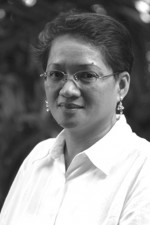Oxfam, for the Oxford Committee for Famine Relief, an independent group of 17 nongovernment organizations (NGOs) based in Oxford, Great Britain does not usually criticize governments in areas where it is engaged in humanitarian work. However, there is more than meets the eye in the recent statement of the Oxfam representative in the Philippines published by the Inquirer yesterday.
Justin Morgan, Oxfam country director was quoted as saying that many of the lower income municipalities are heavily dependent on private sector companies, the United Nations and NGOs here and abroad in efforts for recovery and reconstruction. Morgan called on the government to attend to the recovery of coconut farmers and fisherfolk who are still struggling to rebuild their communities devastated by Typhoon Yolanda (international name: Haiyan).
Oxfam international has been doing humanitarian work in Cebu, Leyte and Samar and, to date, has reached more than half-a-million people with emergency relief during the first three months of the disaster response. Distribution of relief goods including water and hygiene aid kits, and supplying clean water to the whole Tacloban population by supporting government to repair and fix broken pipes comprised the international NGO’s initial response.
This was followed by the distribution of 400 tons of rice seeds in six rural municipalities south of Tacloban since December last year. In its website, Oxfam reported having assisted farmers in these areas in clearing fields and irrigation channels by way of prepping farms for the planting of seeds, implying that this particular work must have been conducted round-the-clock because farmers were facing a deadline, so to speak. The Oxfam initiative, which was supported by the government and other private groups have benefited some 4,000 farmers.
The goal is to reach 6,000 more in time for the current planting season. Assuming there have been no major hitches in the delivery of the farm inputs, farmers in Eastern Visayas have to thank Oxfam for winning the race against time, that is, planting for the second growing season which ends this month and in April.
If Oxfam is showing signs of frustration, it is simply because more than four months after the world’s strongest typhoon hit Eastern Visayas, northern Cebu, northern Negros and many parts of Capiz and Aklan, the government has yet to come up with a clear and focused direction towards full recovery and reconstruction.
Adjustments have already been made in our expectations during the rescue and relief phase but four months sound like eternity to those hit hard by Yolanda. International agencies are monitoring relief, rehabilitation and reconstruction efforts undertaken by their partners in the Philippines but if these NGOs are getting frustrated, how much more the victims of Yolanda?
Fortunately, the gaps in so far as government action is concerned do not slacken the willpower of Oxfam and many other NGOs to continue with rehabilitation and reconstruction works.
Last week, I was fortunate to have been invited by Teresa Ruela Dosdos to attend the two-day Social Enterprising Visioning and Engagement (SERVE) Conference. Teresa is part of the hosting committee led by the Institute of Social Entrepreneurship in Asia (ISEA), the main convenor of the conference.
Oxfam, Peace and Equity Foundation, VICTO National, World Fair Trade Organization, Ateneo School of Government, Philippine Business for Social Progress, Philippine Rural Reconstruction Movement, Foundation for These-Abled Persons, Inc., Philippine Coffee Alliance and many other private groups served as co-convenors.
The gabfest gathered together more than 100 NGO leaders, representatives of private groups and government agencies to craft a more focused reconstruction agenda in order to build back better.
My interest was right away piqued on Day 1 with highlights of the Provincial Action Research and Consultation Processes. Focus group discussions (FGDs) as opposed to one-on-one interviews are helpful for various NGOs wanting to know the situation on the ground. One report caught my attention: A barangay captain in Samar has totally lost faith in the government because help was not only wanting but very slow. Sadly, the view is nothing new, but coming from a village official who lost his leg in the process of distributing relief to his constituents, this is even more calamitous than Yolanda.
The results of a series of FGDs conducted by ISEA with various sectors in Leyte, Samar and Northern Cebu are important references for reconstruction czar Panfilo Lacson because they do not jibe with what the central government is saying with respect to the rehabilitation of the typhoon-devastated areas.
Disclaimer: The comments uploaded on this site do not necessarily represent or reflect the views of management and owner of Cebudailynews. We reserve the right to exclude comments that we deem to be inconsistent with our editorial standards.

